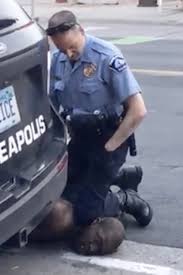900 319 0030
enquiry@shankarias.in
Why in news?
The United States is witnessing widespread protests against the recent death of George Floyd, a black man, by the action of police.
What led to the protests?

How prevalent were the protests?
What controversy did Trump trigger?
What does this demand?
Source: The Hindu